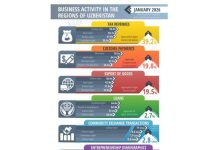By Qamar Bashir
The aftermath of the U.S. airstrike on Iran’s Fordow nuclear research facility has plunged the global media into a storm of speculation, contradiction, and geopolitical reckoning. The strike, executed by stealth B-2 bombers, was intended as a decisive blow to Iran’s nuclear program. However, the effects remain murky.
While the United States claimed the site was “completely obliterated,” setting Iran’s program back by “several years,” Iran downplayed the damage, admitting to a temporary disruption of “a few months” but insisting that its nuclear scientists, engineers, and infrastructure remain intact and resolute.
Even Israeli intelligence agencies and atomic energy officials acknowledged significant damage but were unsure of the long-term impact. Then came the contradictory statements from President Trump himself. In one breath, he asserted that Iran had advance warning and evacuated all personnel, saving lives. In another, he insisted that Iran failed to remove its enriched uranium and sensitive equipment before the attack—indicating the material was destroyed.
Amid these contradictions, the International Atomic Energy Agency (IAEA) took a professional stance: unless inspectors are allowed back into Iran’s nuclear facilities, any claims—American, Israeli, or Iranian—remain speculative.
Amid this narrative warfare, Iran has taken a bold and provocative step. In a sharp rebuke to the international community, Iran’s parliament passed legislation permanently banning IAEA inspectors from accessing any of its nuclear facilities. Iranian officials accused IAEA inspectors of acting as “spies” for the United States and Israel, allegedly providing intelligence that aided the airstrike on Fordow.
While Iran admitted that the site was damaged and pushed back temporarily, its leadership emphasized that the knowledge, expertise, and capability of its nuclear scientists remain undiminished. The program, they declared, will not only be restored but advanced beyond previous levels—with the strategic advantage of zero international oversight from here forward.
In a chilling warning, an Iranian spokesperson declared that while Iran may not need nuclear weapons to defeat Israel, any future confrontation would result in a “complete knockdown” of Israel—once and for all.
Iran’s fury wasn’t only directed at the military assault. Tehran reserved special condemnation for the IAEA’s Director General, accusing him of cowardice and double standards. Despite Iran being a signatory of the Nuclear Non-Proliferation Treaty (NPT) and abiding by international protocols, no condemnation came from the agency after the unilateral strike on a sovereign, peaceful state.
The U.S. and its Western allies justified the attack by invoking Israel’s “right to self-defense,” a phrase that has now become, to many in the international community, an Orwellian euphemism. Iran was not the aggressor. It launched no missiles. It issued no military threat. And yet it was bombed—without provocation, without due process, and without international consensus.
In the same breath, Western leaders repeated the refrain—“Israel has the right to exist”—as justification not only for the Iran strike but also for Israel’s campaigns in Gaza, Lebanon, Syria, and beyond. But global patience is wearing thin.
A fiery speech in the European Parliament recently captured this moral exhaustion. “I’m sorry,” a female member of parliament declared, “that we could not protect the Palestinian children. I’m sorry for the hospitals we failed. I’m sorry for the doctors, paramedics, and UN staff killed by Israeli bombs. We’ve lost our ethics. We’ve lost our moral compass. And with that, we’ve lost our humanity.”
What is emerging in 2025 is a historic pivot in global opinion. The sympathy that Israel once commanded has eroded. For the first time, we are witnessing a near-consensus backlash against Israeli militarism and Western hypocrisy.
Enter Zohran Kwame Mamdani, the newly elected Muslim mayor of New York City, whose bold remarks have gone viral across the globe. He announced an aggressive clampdown on New York-based charities funneling millions into illegal Israeli settlements. He vowed to shut down financial channels that siphon taxpayer funds to build settlements “on stolen land, at the expense of the original Arab and Palestinian inhabitants.”
Even more striking was his legal stance: Mamdani has pledged to arrest Israeli Prime Minister Benjamin Netanyahu if he ever sets foot in New York City, invoking the International Criminal Court’s warrant for war crimes. Netanyahu, Mamdani declared bluntly, is a “war criminal.”
This represents not just a political shockwave—it’s a symbolic break from decades of blind support. Israel’s aura of invincibility is now under siege—not from Iranian bombs, but from collapsing global credibility.
Despite its nuclear arsenal, advanced technology, and unmatched military capabilities in the region, Israel has failed to crush Iran’s strategic depth or dismantle its deterrent capability. Iran has now proven that without even using nuclear weapons, it can survive, retaliate, and escalate on its terms.
Moreover, criticism is no longer limited to outsiders. Even within Jewish communities worldwide, dissent is growing. Increasingly, Jewish intellectuals, religious leaders, and diaspora voices are questioning the direction of Israeli policies. Many argue that Israel has become the most dangerous place on Earth—for Jews themselves. Why? Because in the name of security, Israel is isolating itself diplomatically and endangering Jewish lives through perpetual war.
Jews live peacefully in countries across Europe, Asia, and the Americas—without fear of daily missile strikes. Only in Israel do they live under constant threat, surrounded by adversaries created by their government’s own aggressive actions.
What began as a U.S. airstrike on Fordow has ignited a crisis that now spans nuclear diplomacy, global ethics, and public opinion. The U.S., Israel, and their allies hoped to showcase strength—but may have instead exposed weakness.
Iran may have lost centrifuges, but it has gained something more powerful: global sympathy, diplomatic leverage, and internal resolve. Israel, once seen as the victim of aggression, is increasingly viewed as an occupier, a warmonger, and—perhaps most damagingly—a pariah.
This isn’t just a regional story. It’s a civilizational shift, where morality, accountability, and truth are being redefined. And in that battle, missiles may shatter walls—but narratives shatter empires.
By Qamar Bashir
Press Secretary to the President (Rtd)
Former Press Minister, Embassy of Pakistan to France
Former MD, SRBC | Macomb, Michigan, USA

















